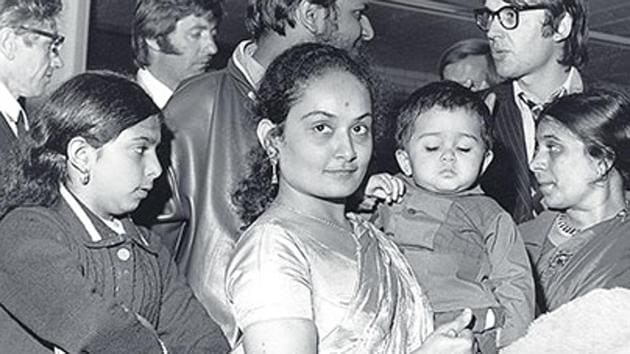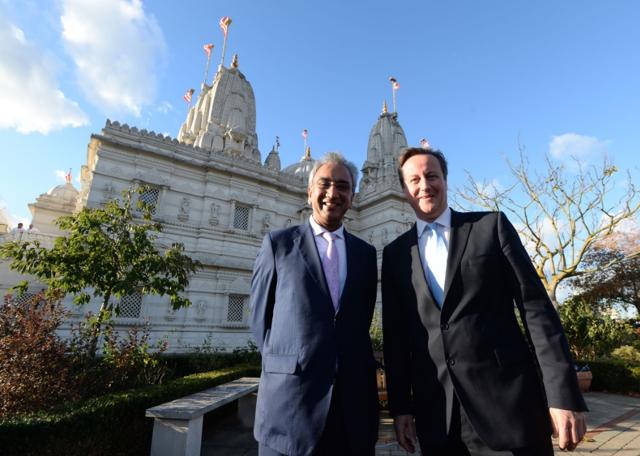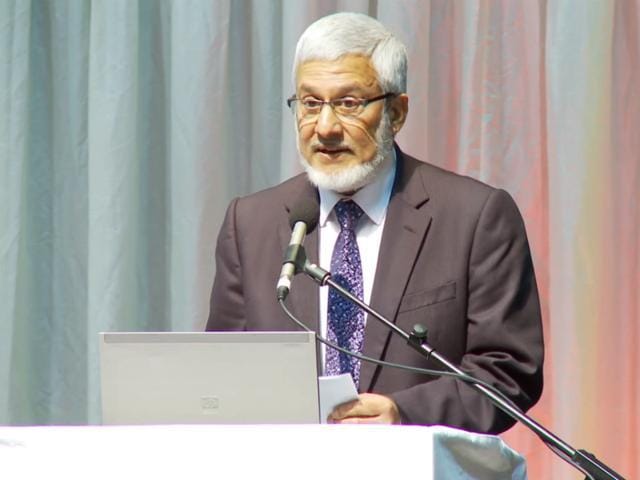Expelled in 1972, Uganda Indians lead UK’s Brexit trade
Former British PM Cameron called Indians and Asians from Uganda “one of the most successful groups of immigrants anywhere”.
The wheel of history has turned a full circle. Well, sort of. When Idi Amin expelled Indians from Uganda in 1972, most of them moved to Britain, settled there and prospered in various fields. Now, they are leading major trade initiatives back to Uganda and East Africa.

As former British prime minister David Cameron said in 2012, Indians and Asians from Uganda are “one of the most successful groups of immigrants anywhere in the history of the world”. This strand of migration – from India to Africa to Britain – is unique in the history of Indian diaspora.
Indians first moved to East Africa in the 1890s to work in large railway and infrastructure projects. By the 1970s, they were leading in business and other fields — enough to worry dictator Idi Amin, who gave them 90 days to leave Uganda, with only $50 each.
This community left behind homes, businesses, friends and memories for an uncertain future in Britain and elsewhere. Today, they are prominent figures in every walk of life in Britain. And Uganda over the years has tried to overcome Amin’s blunders.

Dolar Popat, member of the House of Lords and the Prime Minister’s trade envoy to Uganda, told HT: “In a short space of time, many who fled Uganda saw amazing levels of success — from family-run businesses becoming major global trading companies and dominating the rich lists in the UK, to the boardrooms of FTSE 100 firms — the Ugandan Asians have woven themselves into the fabric of British life”.
“It is worth remembering that Edward Heath and his government were incredibly principled in inviting the Ugandan Asians to Britain. Other world leaders – including Indira Gandhi – simply refused to help. But Uganda’s and India’s loss has been Britain’s gain”.
The Theresa May government is keen to revitalise trade links with India, Uganda and other Commonwealth countries in the post-Brexit situation, when Britain will not have access to the European Single Market.
While Popat says he is amazed at the number of companies and Asian individuals approaching him, wanting to trade with Uganda, Leicester-based Jaffer Kapasi – one of those expelled in 1972 – has been appointed Uganda’s honorary consul-general.

He says: “India remains high on the agenda but many African countries are also ready to benefit in the post-Brexit situation. The East African countries are going through the opposite of Brexit, where there will soon be one currency one visa and one nation serving over 300 million people, with ease of trade”.
“A large number of Leicestershire Indian businesses with historical ties are already trading with Uganda or East Africa, from packaging to medical technology to solar energy”.
Popat notes that many of those expelled from Uganda were entrepreneurs; they understood business and its risks, which allowed them to prosper elsewhere. The same entrepreneurial skills are now playing a vital role in developing trade links between Britain and Uganda.
“A lot of political focus in Britain is given to our trade links with India. But if you take Africa and India they have very similar populations, and yet we do twice as much — £35 billion — worth of trade with Africa than we do with India (£17 billion)”, he adds.
Uday Dholakia, who has the role of ‘export champion’ with Commonwealth Enterprise and Investment Council, says: “British Asians in Leicester, three decades ago, led the first trade mission to Uganda, post-Amin, at their own initiative to start the dialogue with the Museveni administration”.
“The initial energy was directed at reclaiming assets and business properties. This quickly led to fresh investment in retailing, consumer based manufacturing to recent involvement with gas and oil exploration. The confidence has percolated into enhanced tourism, supply chain import of fresh fruit, vegetables and flowers that are flown daily into Europe”.
Indians from Uganda settled in various parts of Britain, with a large concentration in the east Midlands town of Leicester, which, over the years, has become a poster town of Britain’s multiculturalism. Twinned with Rajkot, it is reputed to host the largest Diwali celebrations outside India.




